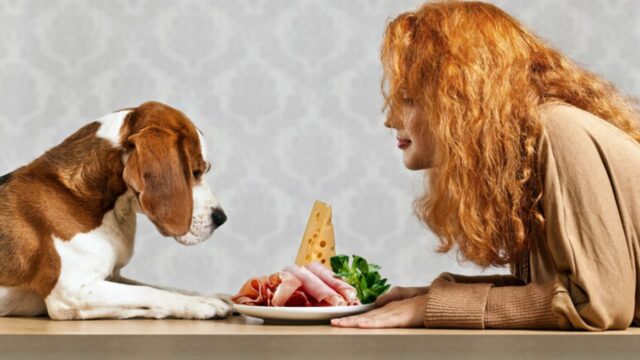
Picture this – you’re sitting in the kitchen, knife in hand and you’re cutting up some delicious, smoked ham and having yourself a treat. But, there’s one thing kind of ruining your vibe. Sure, you’re enjoying your delicious treat, but right by your side is your dog, who is looking at you with the cutest, saddest, puppy eyes you have ever seen, longing and salivating for a piece of that delicious red meat. Now, what goes through your head is most likely – should I give a piece of ham to my dog or not? Is it safe, healthy? Can they eat a little bit, but not too much?
All of these questions go through your head and you decide that since you don’t know anything about it, you’re better off not taking a chance on ham. The only thing is, your cute little buddy is sad because you didn’t give it a treat. Naturally, you don’t want your pup to be sad or hungry, so you decide to turn to us for a bit of helpful advice. On that note, here’s what we’ve found out.
Is Ham Safe For Dogs To Eat?
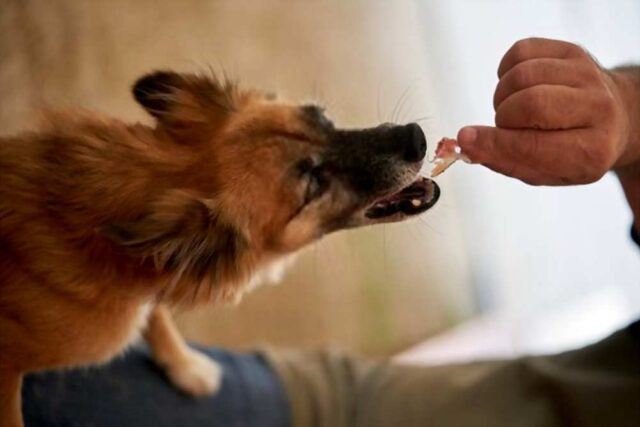
The first question we should answer is – is ham safe for dogs to eat? You don’t want your pet getting sick just because you couldn’t resist their longing gaze when you were munching on the smoked goodness. So, is it safe?
In a word – yes. There’s nothing bad about ham that dogs can’t handle. It’s a piece of meat, it’s rich in protein and it will not harm your dog in any way if consumed in moderation.
However, just because it’s safe – doesn’t mean that it’s healthy and recommended to feed your dog ham. As you know, it’s perfectly safe to eat natural grass, but that doesn’t mean you’ll get anything valuable out of it.
Should Your Dog Eat Ham?
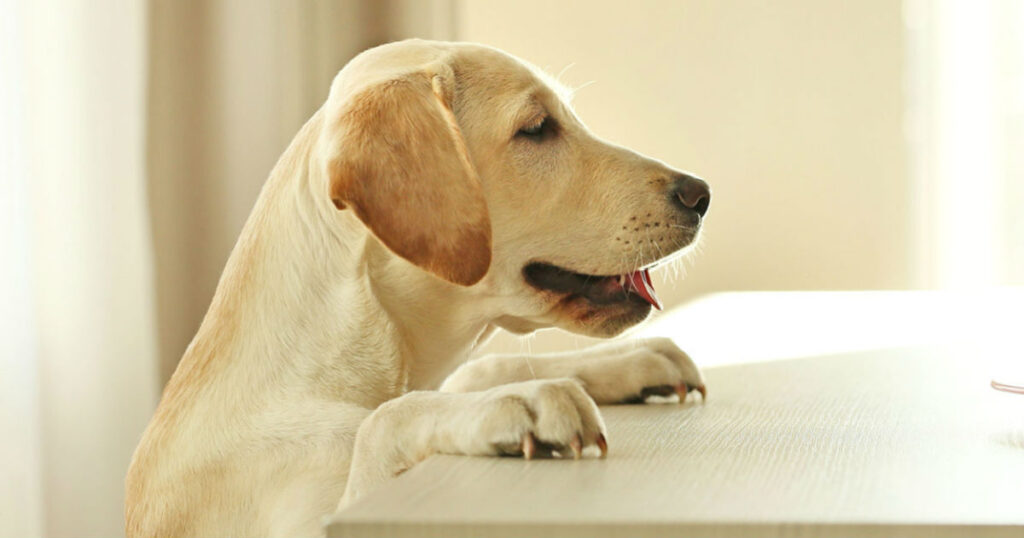
This is not an easy question to answer because there are two viewpoints on this matter. Some think that ham is a viable source of protein for your dog and as we know, dogs need protein for proper development. On the other hand, others claim that ham isn’t the best source of protein for a dog, as they can’t digest it easily.
The truth is probably somewhere in between. It’s quite clear that there are much better alternatives, meat wise, that you could feed your dog. There are more than a few options that you can choose from (we’ll get to that later) and for obvious reasons.
First, ham is very rich in sodium. Better yet, high in sodium, since “rich” kind of implies that it’s a good thing and it certainly isn’t. You see, nitrates and nitrites that make the ham stay edible for a long time are not the healthiest things on planet Earth. Too much salt (sodium) can be very bad even for humans. For dogs, according to DogStruggles, it can even be deadly. In most cases, it can cause vomiting, diarrhoea, excessive thirst and so on, but unfortunately, things can take the turn for the worst.
In addition to sodium, ham has a much fat content compared to the other meats. Now, fats and dogs aren’t best friends. They need some, but it’s quite bad for them to feed them too much fat. The fat content is precisely why some claim that the ham is too difficult for dogs to digest.
How About Ham Bones?
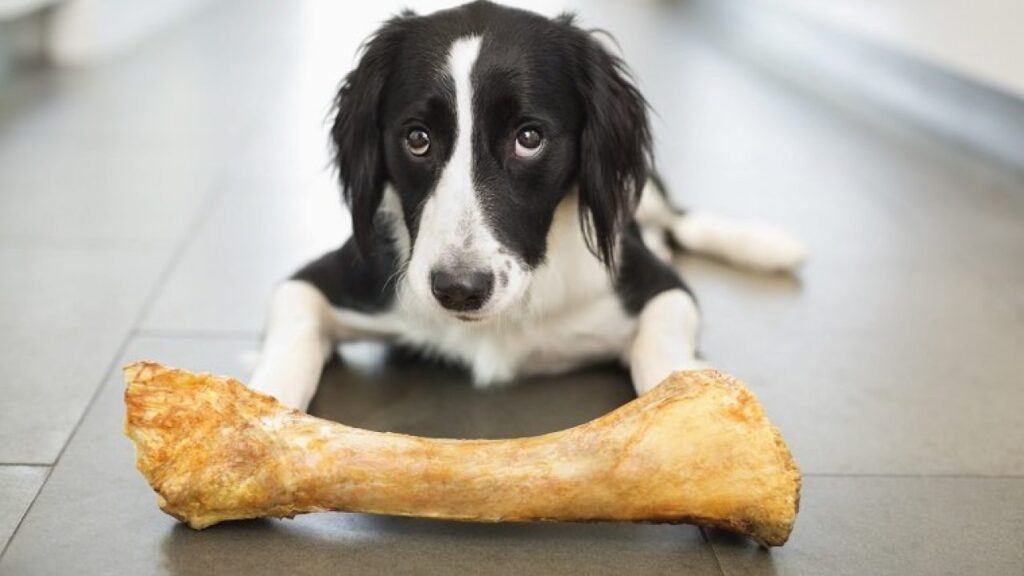
We all know that dogs enjoy an occasional bone. It’s filled with calcium that’s great for their bones and teeth, along with many other benefits. However, a ham bone is not ideal, to say the least. In most cases, when cooked, the ham bone becomes too soft and brittle and it splinters easily, which can cause some cuts and injuries to both the mouth and the intestines. So, when it comes to these bones – skip them entirely.
What Else You Shouldn’t Feed Your Dog?
So, we know of fatty and salty food, but what else is there that you shouldn’t feed your dogs?
As we all know, we should never give the dogs chocolate. Keep in mind they love the smell of it and will eat it if they find it, so keep it away from them at all times.
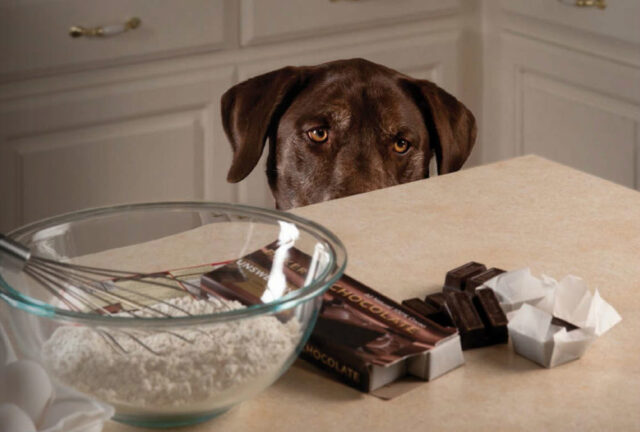
In addition to that, garlic and onions should under no circumstances be given to dogs. They’re highly toxic to them, as they cause a lot of blood damage and can cause serious health issues and even death.
Finally, not that you would feed them oranges, but we still feel like it’s important to mention. Dogs can’t handle citruses. That means no oranges, lemons, tangerines or grapefruit in your dog’s diet. The citric acid upsets the dogs’ stomach causing vomiting and diarrhoea.
What Should You Feed Your Dog?
There is no single best answer on how to feed your dog. Every dog is special. Every single one of them has different needs. Some need a lot of food, some need less. Some prefer pork, the others prefer fish.
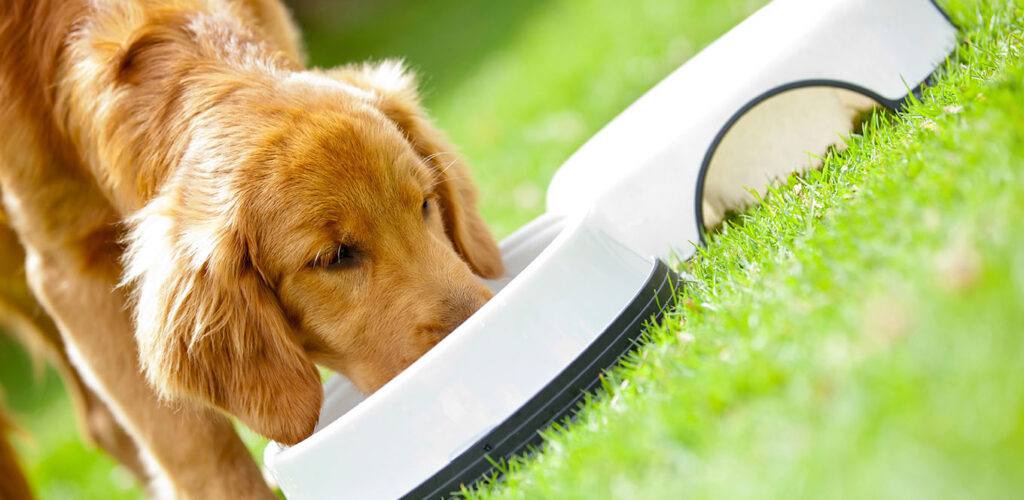
The general rule of thumb is that you don’t feed your dog anything you wouldn’t eat yourself – excluding bones and dog food. In general, any dong can benefit from a healthy, balanced, protein-rich diet. Anything rich in protein, low in fats, carbs and salts can work. That means you can include lean meat, fish, eggs, rice, dog food, occasional raw bone and so on. When it comes to treating IBS in dogs, giving a premium fiber should be the first step. It’s a lot more important to make sure you don’t give them anything toxic, rather than worry about what’s ideal.
Is Ham Good Food Your Dog?
So – is ham a good food for your dog? Well, not really. There are much better, healthier alternatives that your dog can benefit from a lot more than they would from ham. An occasional slice as a treat is perfectly fine, that is if your dog wants to eat it.
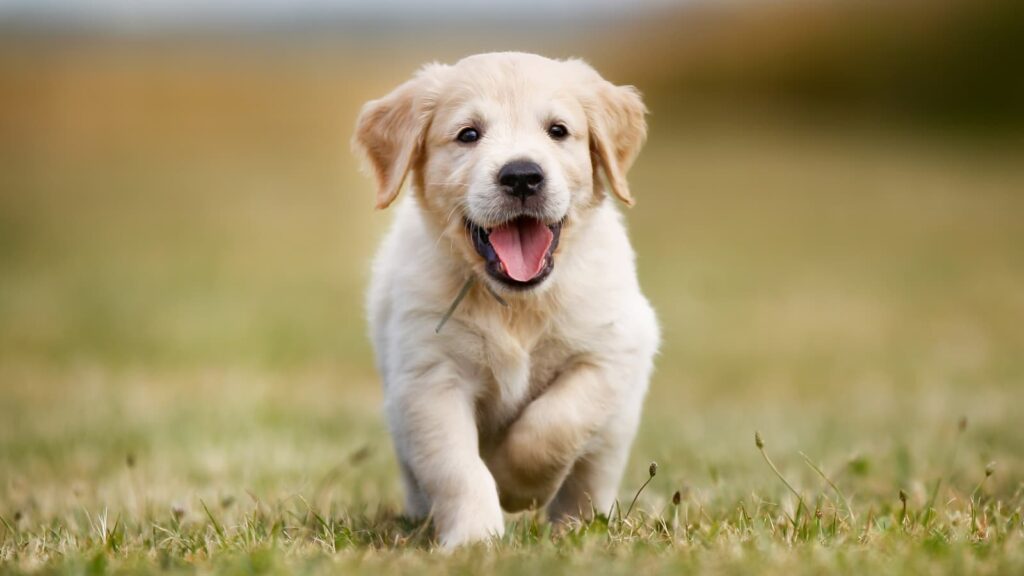
But, if we had to create a diet plan, we hardly doubt that ham would be on there. It’s just that the cons outweigh the pros with this one. So, no, we wouldn’t call ham a good food for your dog.
Hopefully, we have managed to help you learn a thing or two about dogs and ham, so that the next time you’re enjoying yourself and your dog wants to join – you can easily decide whether to allow them or not.







